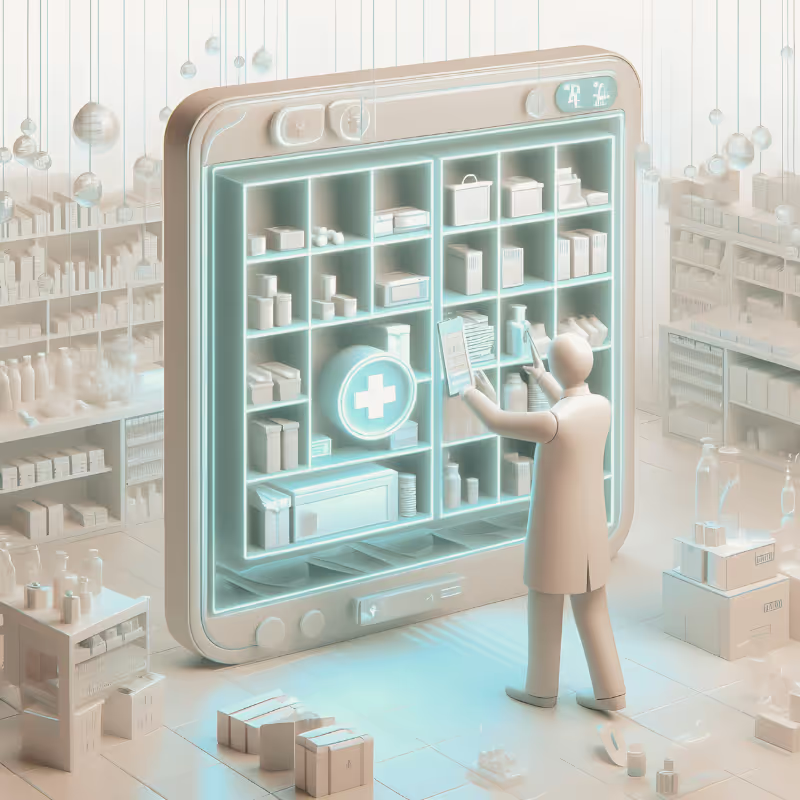Winning the Market Access Game: AI & RWE in Pharma’s Competitive Edge
In today’s fast-evolving pharmaceutical landscape, gaining market access is more challenging than ever. High drug costs, stringent payer regulations, and limited clinical evidence demand a data-driven approach. AI-powered Real-World Evidence (RWE) analytics is transforming how pharma companies navigate formulary positioning, prior authorizations, and payer negotiations. By leveraging real-world insights, companies can strengthen their case for preferred drug status, optimize pricing strategies, and accelerate patient access to life-saving treatments.
Transforming Evidence Generation & Market Access
With increasing demand for innovative therapies, particularly in oncology and rare diseases, regulatory approvals are often fast-tracked despite limited clinical evidence. However, the high costs of biologics and specialty medicines, combined with stringent cost-containment measures by payers and federal agencies, create both challenges and opportunities for pharmaceutical companies. Successfully navigating these hurdles requires a strategic approach that leverages real-world evidence (RWE) and real-world data (RWD) to demonstrate value and optimize market access.
The Challenge: Navigating Market Access Hurdles
Pharmaceutical companies invest years of research and millions of dollars in bringing a new drug to the market. However, securing a preferred status on a formulary list remains one of the biggest challenges in ensuring commercial success. The hurdles of prior authorization (PA) requirements, physician adoption, and payer negotiations can limit a drug’s accessibility and impact. Without the right strategy, a drug may struggle with low visibility, high prescribing resistance, and competitive disadvantage in pricing negotiations.
A major reason for these barriers is the lack of real-world evidence (RWE) and utilization data that can help stakeholders which includes payers, healthcare providers, and pharmaceutical companies make informed decisions. In the absence of robust, real-time insights, physicians may be hesitant to prescribe a drug, payers may impose stricter restrictions, and pharmaceutical companies may find themselves in a weaker position when negotiating pricing and reimbursement terms. Additionally, without sufficient utilization data, a drug may face resistance in achieving its preferred status, making it harder for physicians to prescribe without extra justification and leading to delays in patient treatment.
The Solution: Leveraging Data-Driven Insights for Market Access
1. Accelerating Market Access & Value-Based Pricing
The global real-world evidence (RWE) market is projected to grow from $2.3 billion in 2023 to $4.5 billion by 2029, reflecting the increasing reliance of pharma companies on real-world insights to validate cost-effectiveness and clinical benefits. Biotech firms are now compelled to leverage RWD to generate RWE, helping them secure favorable health economics and outcomes research (HEOR) and health technology assessment (HTA) evaluations. This leads to better payer engagement and increased reimbursement success.
2. AI-Powered Real-World Analytics for Strategic Payer Engagement
A data-driven, AI-powered framework can address market access challenges by offering insights that:
- Strengthen the case for preferred formulary status – By leveraging real-world evidence and utilization patterns, pharma companies can effectively demonstrate a drug’s efficacy, cost-effectiveness, and patient outcomes. This increases the likelihood of securing a preferred status on the formulary list, reducing the financial burden on patients and improving overall adherence rates.
- Ease the prior authorization (PA) process – AI-driven insights streamline documentation and justification, making it easier for physicians and patients to navigate PA requirements. When payer concerns regarding drug necessity and efficacy are proactively addressed, PA approvals become faster, minimizing treatment delays.
- Provide an upper hand in negotiations – With robust RWE on drug performance, adoption trends, and patient outcomes, pharma companies can engage payers with compelling evidence. This leads to better reimbursement rates and contract terms, positioning the drug more favorably in the market.
Strategic Partnerships & Data-Driven Contracting
By integrating RWD sources and advanced analytics, biotech firms can renegotiate contracting terms with payers more favorably, enhance pricing strategies, and strengthen value-based engagements. AI-powered Real-World Evidence analytics help identify opportunity areas, address weak spots, and optimize regulatory and payer submissions. These insights ensure that pharma companies can proactively navigate market access roadblocks while reinforcing their drug’s value proposition.
The Impact: A Win-Win for Pharma, Physicians, and Patients
A well-executed, insights-driven approach to market access creates a ripple effect of benefits across the entire healthcare ecosystem.
For pharma companies, this translates into stronger negotiation power, better formulary positioning, and a competitive edge in a saturated market. Physicians benefit from enhanced prescribing confidence, with clearer visibility on how to utilize a drug effectively, backed by real-world clinical and market data. Most importantly, patients experience faster access to life-saving medications, improved treatment adherence, and reduced out-of-pocket costs.
Conclusion: The Road Ahead
An insights-driven approach to market access is no longer optional - it’s a necessity. By leveraging real-world insights, pharma companies can navigate the complexities of formulary placement, prior authorizations, and physician adoption with greater ease. The result? Stronger market positioning, improved prescribing confidence, and ultimately, better patient outcomes. In a competitive pharmaceutical landscape, companies that embrace insight-driven strategies will not only secure a market edge but also drive meaningful impact in patient care.
At Agilisium, we are actively exploring how AI-powered Real-World Evidence analytics can enhance pricing strategies, payer engagement, and value-based contracting. We aim to support life sciences companies in making more informed, data-backed decisions - positioning ourselves as a key enabler in this transformation.














%20(7).avif)






















%20(5).avif)
.avif)


